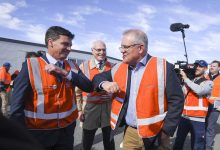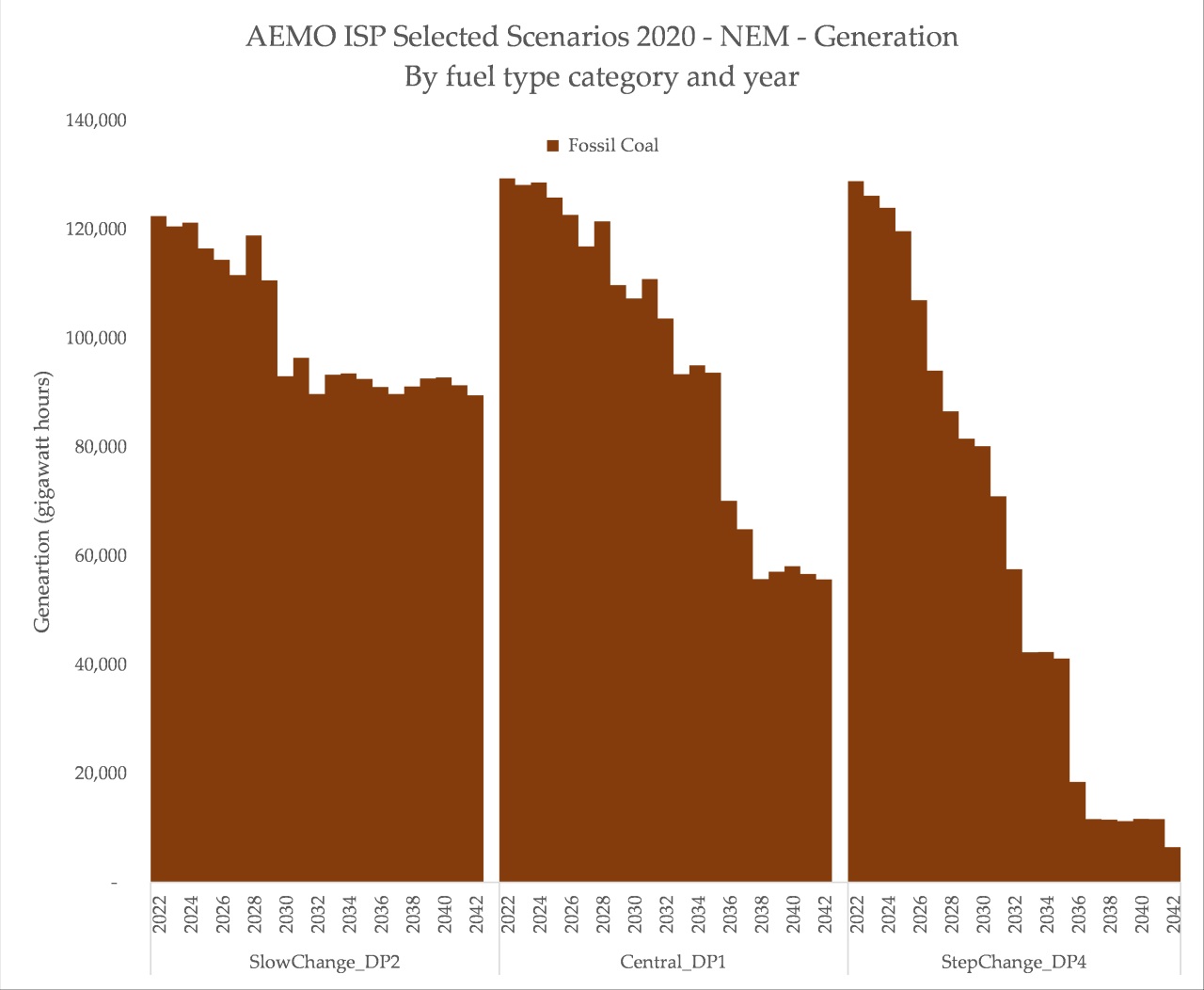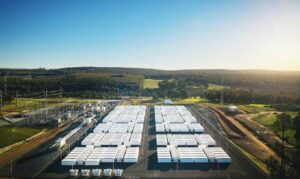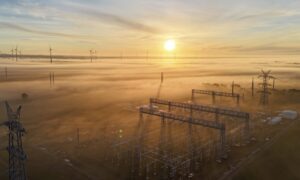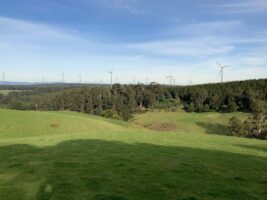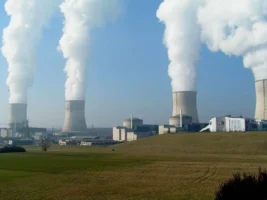One of the defining characteristics of Australia’s energy and climate debate – and RenewEconomy readers will be deeply familiar with this – is that it is inherently circular. A closed loop repeating pattern of a small and predictable set of policy tricks are enacted by a conservative government, the opposition party does not oppose them. Industries heavily vested in fossil fuels twist the knobs and turn the levers in the background to maximise opportunity and eradicate risk, and the cycle repeats.
Occasionally, something weird happens. Tony Abbott was weird. The West-Australian election, and the Liberal party’s plan to literally decarbonise the entire power sector in 10 years, was weird. But for the most part, it’s the same simple tropes on repeat.
Repetition doesn’t fly in a world that has broken free of that bland cycle and is changing very, very fast.
Last week, the Morrison government again scraped up against the shifting tectonic plates of global climate action, as countries around the world updated their 2030 climate targets and Morrison steadfastly refused to do the same, opting to mangle some statistics instead.
But the drumbeat is quickening. The UK, the US, Canada and Japan have all raised their climate ambitions. Smaller-scale changes are emerging. Japan just scrapped the plans for the last remaining coal plant in its development pipeline (albeit in the context of some upgrades of operating plants). China wants to peak its coal output by 2025. A top German court just ruled that delaying climate action to post-2030 is a breach of human rights.
Japan scraps last planned coal-fired power plant 🇯🇵🌲
Kansai Elec and Marubeni won't move forward with a 1.3GW coal project in Akita, leaving Japan with no new construction on the horizon amid tighter emissions rules and an outlook for weak power demand
Statement from Kansai 👇 pic.twitter.com/fwkuZntG6R
— Stephen Stapczynski (@SStapczynski) April 27, 2021
In Australia, the prospect of a full-scale intentional phase-out of coal on dates aligned with the ambitious 1.5°C goals of the Paris Climate Agreement is essentially still outside the realms of polite, serious discussion. That would entail a coal phase-out by 2030. AEMO’s various Integrated System Plan 2020 scenarios put the demise of coal somewhere between 2042 and never.
Today, the Energy Security Board has continued its process of preparing for what is generally uttered, but never declared too loudly: coal will become unviable well before any of the dates shown above, thanks purely to the economics of renewable energy. The head of the ESB, Kerry Schott, told RenewEconomy’s Energy Insiders podcast that “people should be in no doubt that coal generation is not viable”.
However, the new report comes packaged with a problematic proposal, in which coal and gas generators receive cash to remain operational within the energy market. In a dark irony, it would operate through the creation of certificates that would be purchased by liable entities – just like Australia’s renewable energy target. Considering that it would be fossil-fuelled power stations on the receiving end of the benefits, it’s a fairly literal subsidy for higher emissions.
Of course, that comes the same day Australia’s Energy and Emissions Reductions Minister Angus Taylor follows through on his threat to build a massive gas-fired power station, publicly funded, to fill a non-existent “gap” in reliability in New South Wales. It’s a mask-slipping moment: you don’t need a reliability obligation if the entire planning process for power stations is conducted in the imaginations of politicians. The head of the ESB, Kerry Schott, seems to find it a little embarrassing.
“One of the reasons given for [a taxpayer-funded plant in the Hunter] is it will flood the market with gas-fired power and when there’s a tonne of supply in the market, prices go down. We all learned this in economics. However, that doesn’t work when there are a whole lot of other things around that are cheaper in price, like wind, solar and big batteries, like pumped hydro and we’ve got Snowy 2.0 coming. Nobody is going to build it from the private sector because it doesn’t stack up. Because it’s expensive power, it’s hard to see it makes commercial sense”, she told Guardian Australia.
Govt to build gas fired power station with public money via Snowy Hydro.
Will take gas from Santos' Narrabri field. Santos asked govt to subsidise pipeline to move the gas.
Govt appointed chair of Snowy Hydro is former CEO of Santos.https://t.co/jLMVaXUxiB
— Tom Swann (@Tom_Swann) April 29, 2021
Gas, too, is suffering the same looming crunch as coal. The few remaining niche applications of gas-fired power generation in grids are decaying very, very fast. “The fuel’s prospects have been called into doubt as energy transition gathers pace, casting a shadow over an industry that has pumped tens of billions of dollars into projects to produce and ship natural gas worldwide,” wrote the Financial Times.
What is playing out in Australia is the reality of the global energy transition coming into direct contact with the souls of those vested – financially and emotionally – in the presence of fossil fuels. The outcome of that friction: a mad scramble to subsidise fossil fuels, whether that’s a ‘gas-fired recovery’, charging taxpayers to build power stations, or policy schemes that indirectly subsidise fossil fuels on grids. This is being realised through a process that began on September 28, 2016, in South Australia – a major blackout shifted Australia’s “trilemma” into a dilemma, and now climate and emissions fail to feature in the work of regulators, energy agencies and the bulk of mainstream media coverage. The ESB’s ‘Health of the NEM’ report aims for “low emissions” electricity supply, with no consideration of a 1.5°C goal or the need to achieve a zero emissions grid before 2030.
It is an attempt to correct an uncorrectable trend, and the simple reality is that it is pretty futile. Of course, if the government simply pivoted from resisting to actively helping, achieving emissions reductions in Australia’s grid at an incredible pace would be relatively straightforward. Even AEMO’s most ambitious scenarios are now considered to be ‘business as usual’. What would the grid look like in Australia, with a genuine federal push to prioritise the safety and health of human beings through emissions reductions?
“The human and financial cost of insecurity is too great to be left unaddressed”, Angus Taylor told Ticky Fullterton at The Australian. He’s talking about the grid, but he’s not really, is he?

